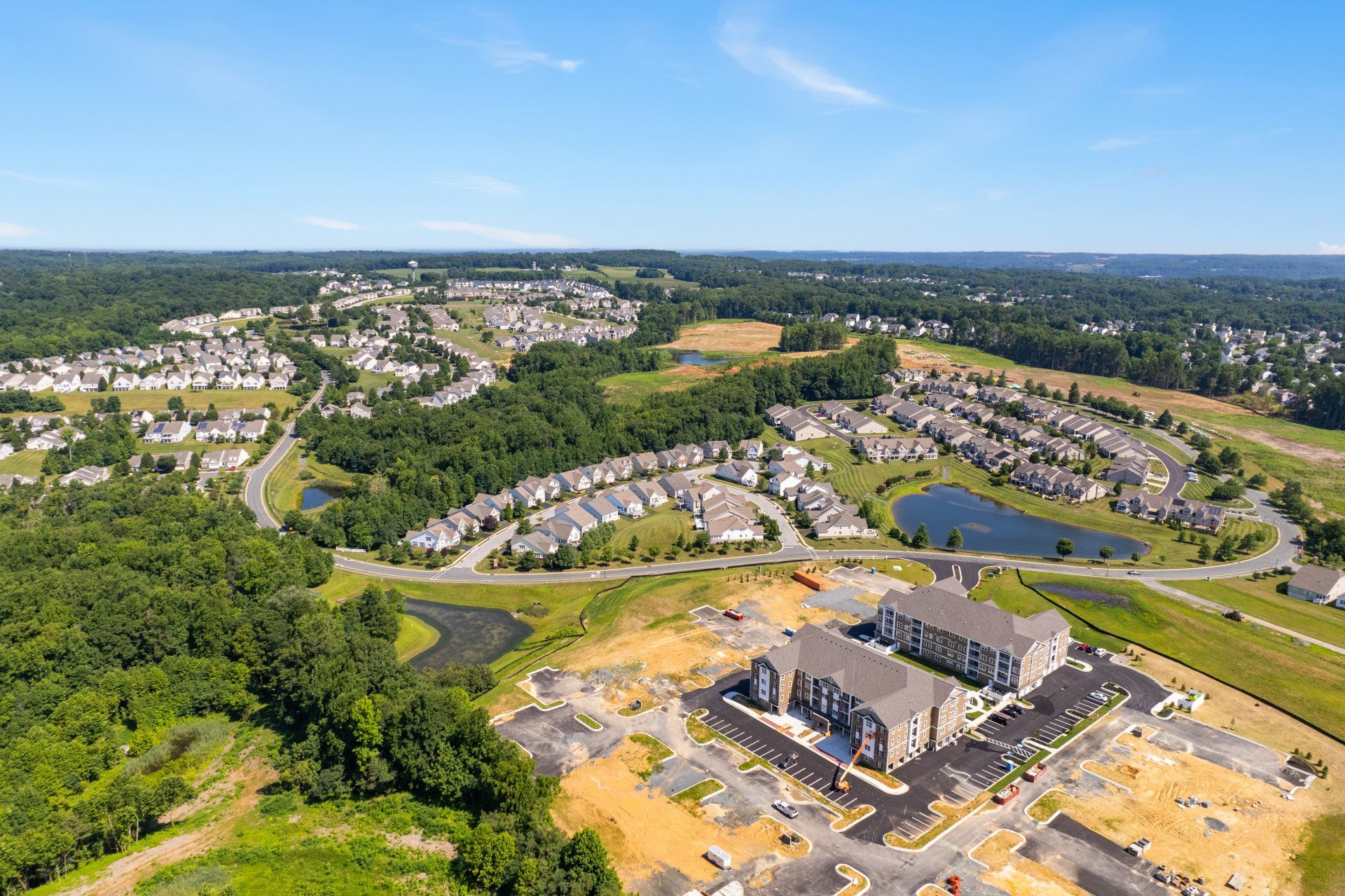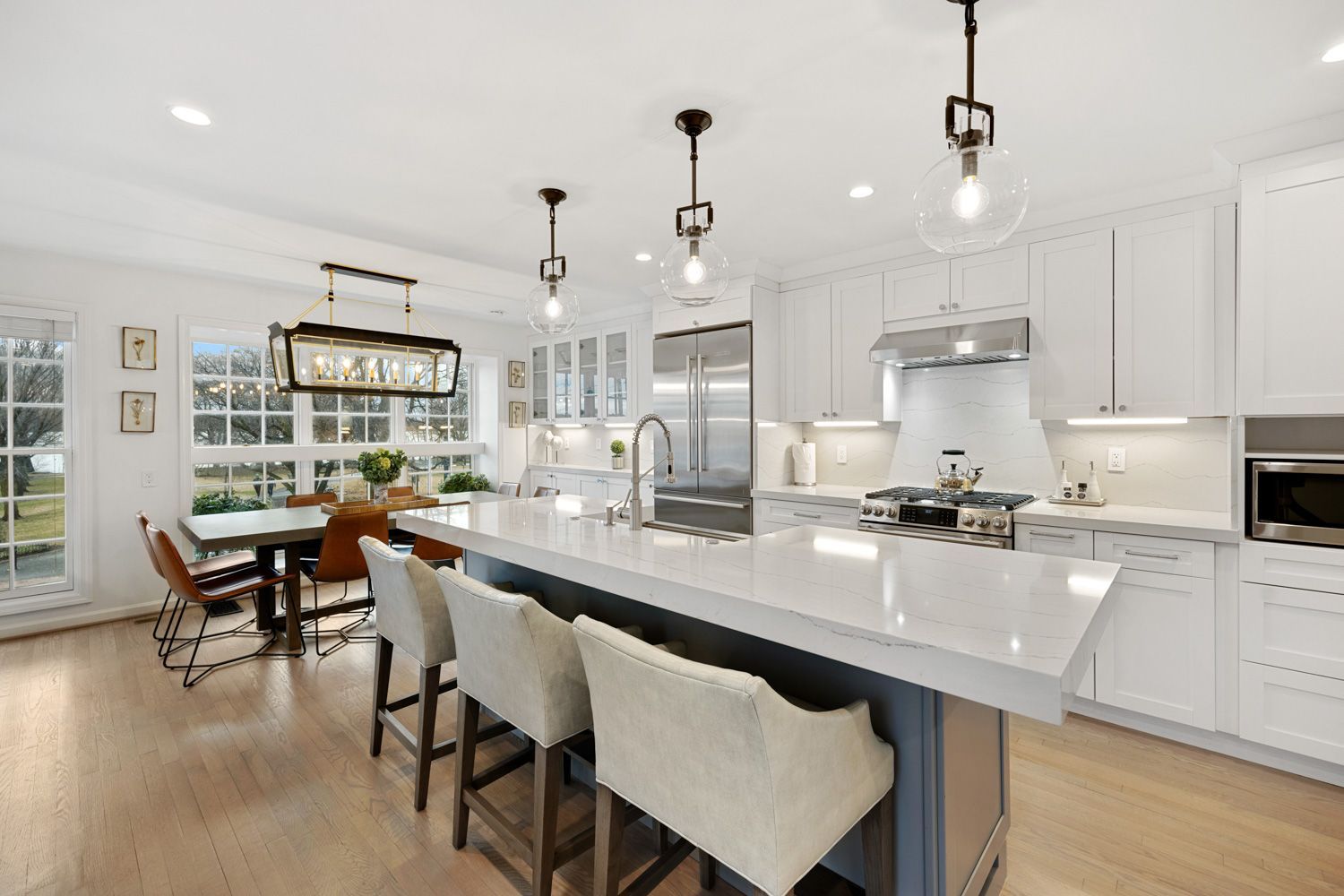Meet Victor Coll, a seasoned expert in the art of in-bound content marketing. With a proven track record in crafting winning content strategies, Victor excels in attracting and engaging audiences organically. His proficiency extends to optimizing content for maximum impact, resulting in increased brand visibility and audience retention. Victor's dedication to the art of in-bound content marketing has helped businesses achieve remarkable growth. Join him as he shares invaluable insights and strategies to empower your content marketing efforts and drive meaningful connections with your target audience.
The Pros and Cons of Virtual Staging
WHY PAY MORE?
Have a Virtual Staging project to discuss? We would love to hear from you.
We will get back to you as soon as possible.
Please try again later.
In recent years, real estate marketing has undergone a massive shift. Before technology saturated the market, buyers had to start a real estate search with a print ad. From there, they traveled and toured properties and invested a great deal of time looking for the perfect property to call home. Fortunately, that time is long gone. Today, online platforms make it easy for buyers to shop for new homes from their smartphones, iPads, or computer.
This enhanced visibility has made the buying process more user-friendly. Instead of spending hours driving from home to home, buyers can scroll through online listings and select a few favorite properties to visit. Even better, sellers can enhance the appeal for online buyers with virtual staging.
Virtual staging takes an empty unit, which can feel cold and unwelcoming, and transforms it into an enticing space buyers want to visit. Be advised, though, that virtual staging isn’t right for every real estate sale. With that in mind, here are a few of the biggest pros and cons of the process:
How virtual staging works
Virtual staging involves more than using software to plug imaginary furniture into real space. Instead, a photographer takes photos of the vacant space and “virtually” changes the unit’s decor to create a more welcoming impression.
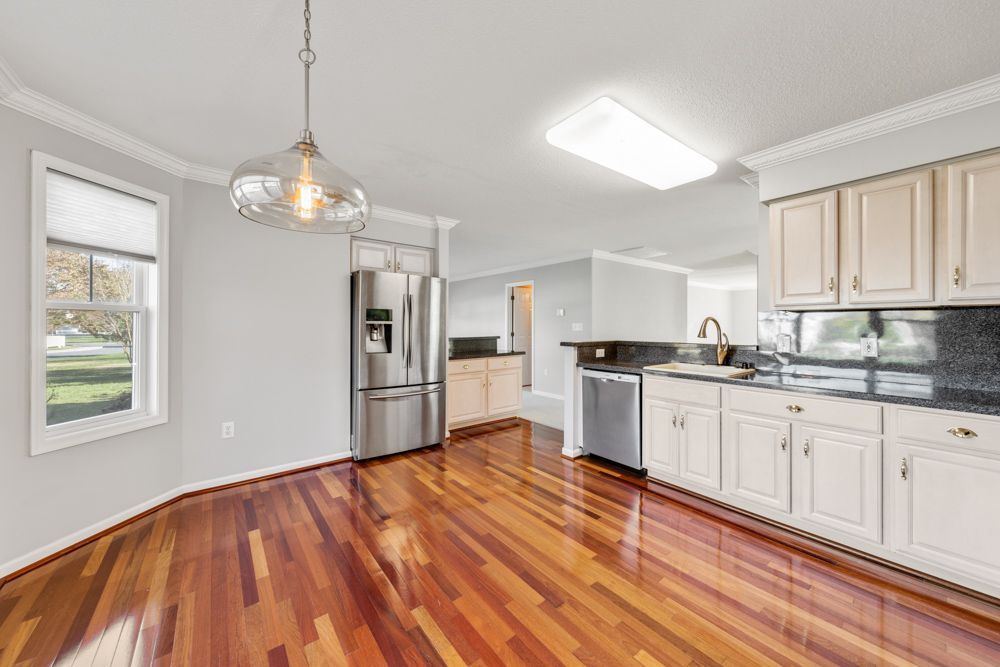
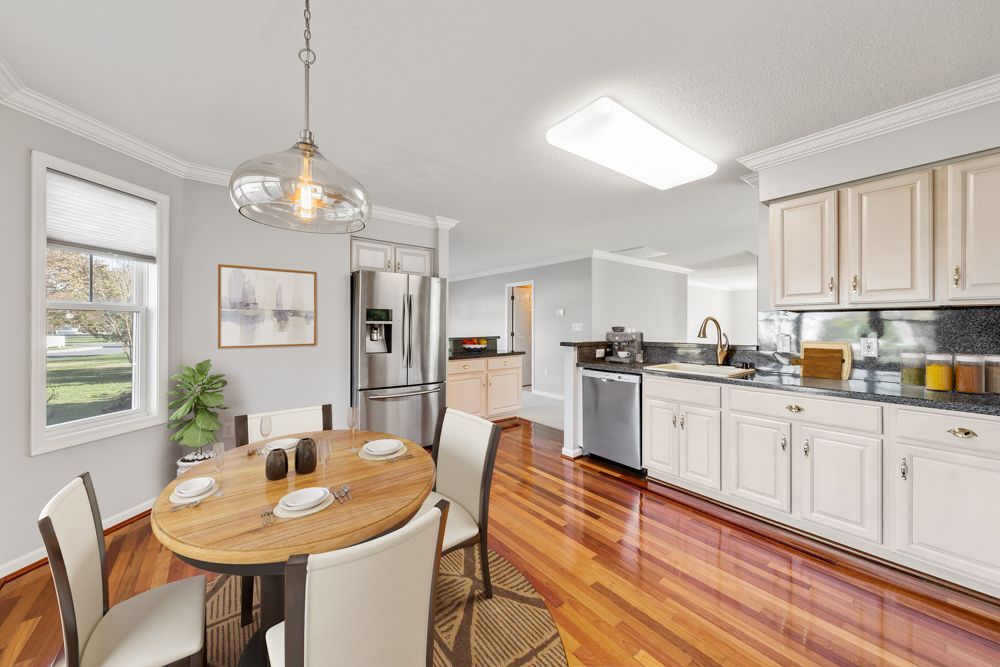
Virtual staging helps spaces stand out and makes it easier for would-be buyers to picture themselves in the home. It’s also a great way to define usable space in digital listings. This applies, for example, to companies selling multiple units in the same building. Without virtual staging, these units often blend together and feel uninspiring.
So, is virtual staging worth it?
The answer is “yes.” Virtual staging allows you to present a property as it could be, which helps potential buyers emotionally connect to the unit. Additionally, it costs just a fraction of what you’d spend on actual, physical staging. If you want to use virtual staging to its full potential, though, there are a few things you’ll need to know.
The pros of virtual staging:
What are the benefits of virtual staging? Virtual staging can be a valuable tool when used correctly. Here are a few of the biggest pros of the process:
- Virtual staging showcases a unit’s full potential. Empty units can feel cold, and it’s tough for a buyer to get a sense of a space during an online viewing. On the other hand, would-be buyers aren’t interested in seeing the current owner’s pictures and decor. Virtual staging offers a nice in-between: it makes a space feel welcoming and lived-in, while also giving the buyer the freedom to imagine themselves in the unit.
- It’s non-invasive. Unlike physical staging, virtual staging doesn’t require a large physical effort or moving a bunch of stuff in or out of a unit. Instead, virtual staging is all done digitally, and it can be adjusted to suit a unit perfectly. Additional tools, like virtual decorating, furnishing, painting, and decluttering or object removal all expand the impact of virtual staging.
- Virtual staging is fast. While physical staging can take a full day or more to complete, teams can complete virtual staging for an entire house in just a few hours. This makes it an excellent option for sellers who want to position their properties effectively without investing a massive amount of effort.
- Virtual staging is flexible. Transform a nursery into a spare bedroom, a closet into a craft room, or a cramped living room into a beautiful open space. Virtual staging allows for creativity. It also ensures you position your unit as attractively as possible for new buyers.
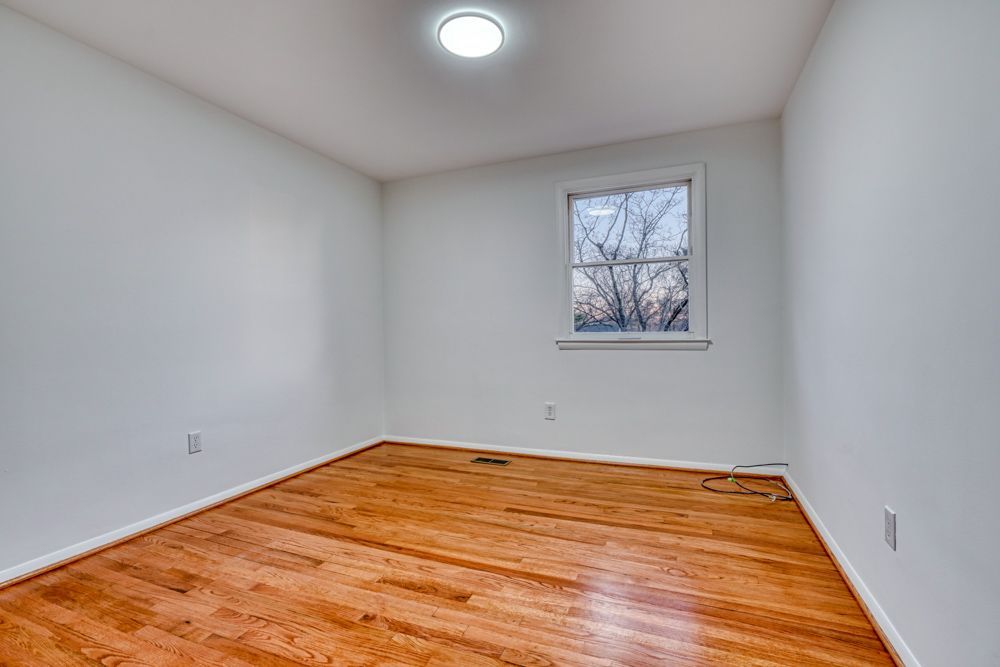
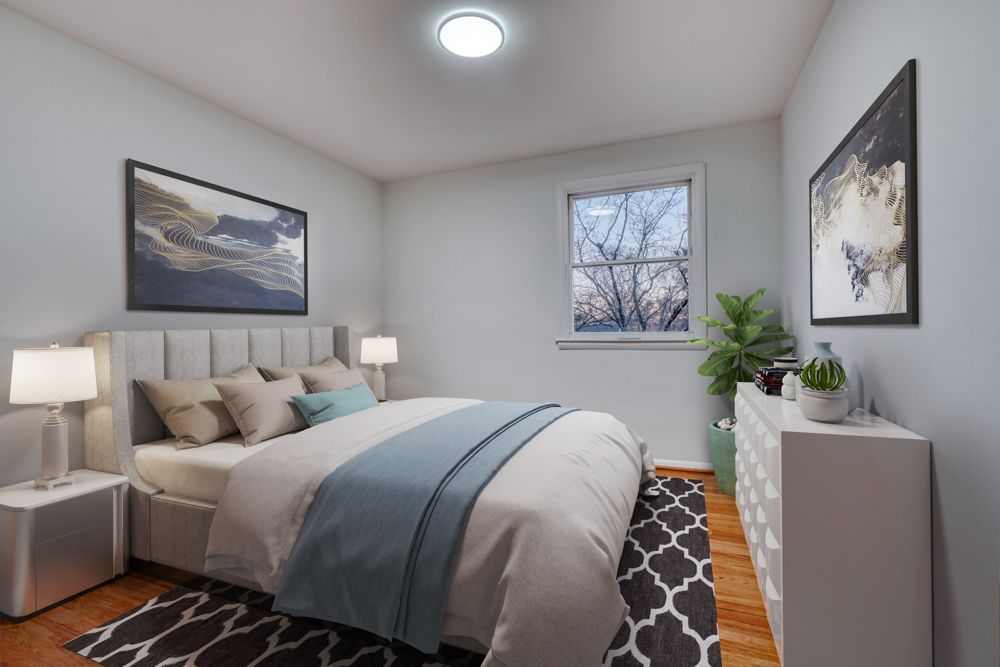
Cons of virtual staging
While virtual staging can be a great tool, there are a few things to consider.
- Virtual staging can be misleading. It’s critical to use clear watermarks that state images are virtually staged. Otherwise, you risk buyers being disappointed when they arrive at a unit that was virtually staged but is empty in real life.
- Virtual staging must be professionally performed to provide buyers with the quality they demand. Virtual staging performed by a novice can look fake or unrealistic, which only makes the room feel off-putting and dissuades buyers from touring the space. With this in mind, always invest in a professional virtual staging service.
- Virtual staging must be brought into the showing. If agents are showing empty spaces, it can be helpful to bring the virtually staged images and display them, room by room, on easels or a flyer. This again, allows buyers to mentally see themselves within the home.
Is Virtual Staging Right for You?
If you’re selling an empty, cluttered, or outdated unit, virtual staging can be an excellent tool to put the listing’s best foot forward. By ensuring the space is presented as appealing as possible for would-be buyers, virtual real estate staging can earn you more eyeballs online and create faster sales.
Interested in Virtual Staging?
Click here to get 20% off your order today.
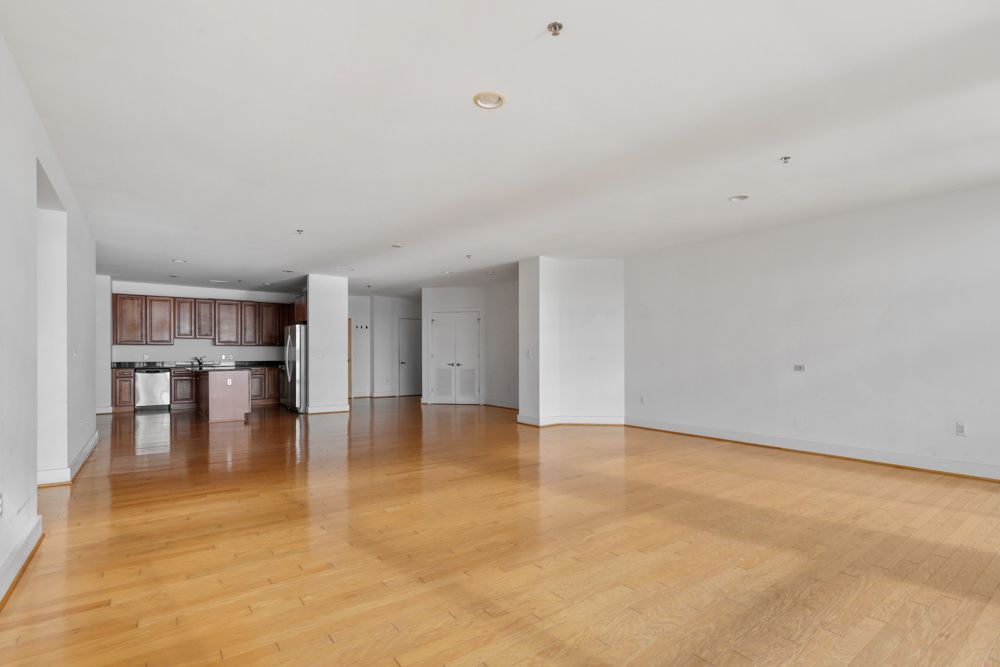
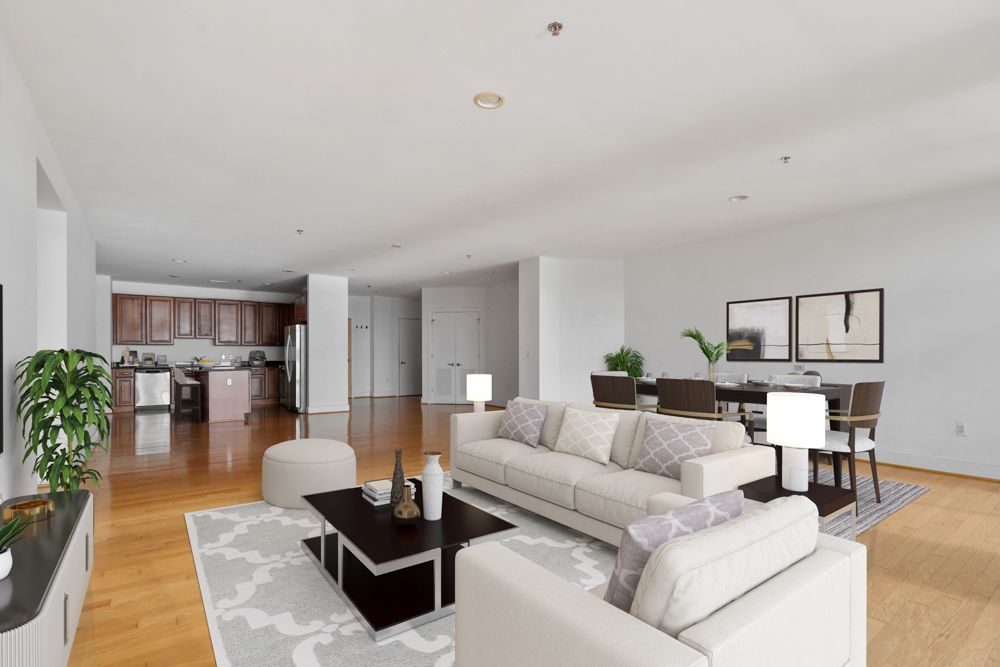


Real Estate Photography Blog Categories



CONTACT US
Brought to you by
1 Texas Station Court
Suite 130
Timonium, MD 21093
All Rights Reserved | ©2025 Hometrack Real Estate Marketing | Privacy Policy | Powered By Craig Westerman, Victor Ivan Coll , and Juno Digital Media











